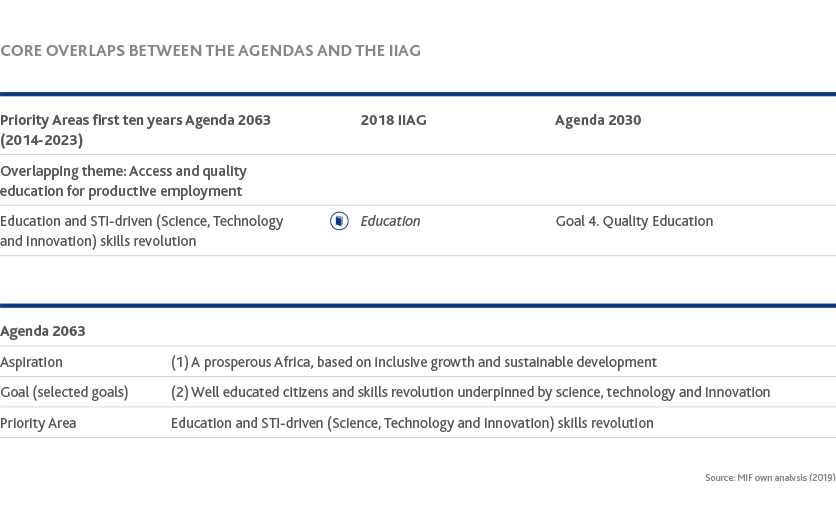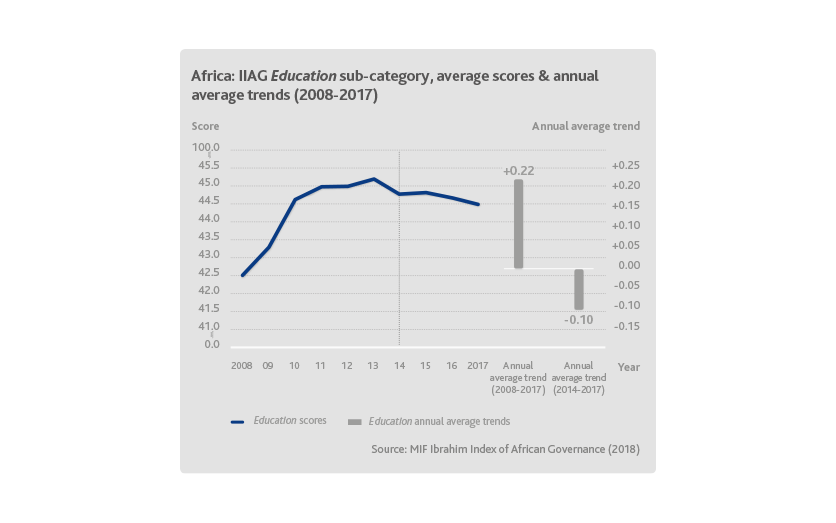Access to and quality of education: How is Africa progressing?
31 October, 2019
The opinions expressed in this article are solely those of the author, and do not necessarily reflect the opinions or views of the Mo Ibrahim Foundation.
I’ve spent a lifetime championing girls’ and women’s learning, as a former Minister of Education in Guinea and a former Assistant Director General for Education in UNESCO. And have worked tirelessly to promote access to and quality of education in my home country, across the African continent and in the world at large.
The Foundation’s latest African Governance Report is timely in sounding the alarm bells when it comes to the access to and quality of education in Africa. The citizen must be at the centre of any policies drawn up to improve and advance education provision, particularly as we move closer towards key milestones of developmental frameworks like the African Union’s (AU) Agenda 2063 and the United Nations’ Agenda 2030. Africa is already halfway through the First Ten-year Implementation Plan (FTYIP) of Agenda 2063, and almost one third of the way through the Sustainable Development Goals (SDGs) completion. These agendas have specifically recognised that education is an essential social good to help people socially, intellectually and economically.

The Ibrahim Index of African Governance (IIAG) provides insights into how the continent is faring in the provision of this essential social good: education. Using the IIAG results, the data shows that since 2014 when the implementation of Agenda 2063 FTYIP began, Education is one of the few sub-categories in the IIAG (out of 14) that has experienced an African average decline, deteriorating by -0.3 points. Of the 27 African countries to display a negative trajectory since 2014, my home country Guinea is the tenth most deteriorated on the continent.

While indicators show access to all levels of education is increasing, African countries on average have regressed in delivering high quality education, training, and research and development and in matching the needs of a competitive economy. In the indicator Education Quality, which measures the quality of basic, secondary and tertiary institutions, only Togo has improved since 2014. It is a worrying trend that shows the extent to which many African countries are still lagging behind in terms of providing the environment conducive to meet the education-related targets set out in both the Aspiration 1 of Agenda 2063 and Agenda 2030’s SDG 4.
In a context of a booming youth population and a decade (2008-2017) of sustained economic growth, African youth are being faced with increasing struggles when entering the job market. The dial needs to be reset if African countries are to put in place policies that improve the quality of education and lessen the mismatch between education supply and job market demands.
Drawing from the IIAG data, the African Governance Report points to strong links between education with economic opportunity. Quality of education can be advanced if governments and partners take a closer look at prioritising active engagement with the private sector to assess the needs and requirements of the job market.
Further, important correlations are outlined in the report to help create a conducive environment for achieving development targets. For example, Access to Electricity shows a strong correlation to performance in both Health and Education.
The work of championing education provision must continue. As we look to the future, and to upholding commitments set out in the Agendas 2063 and 2030. The African Governance Report sheds light on the crucial challenges that lie ahead and points to areas where governments and partners can action in order to steer progress in the right direction.



